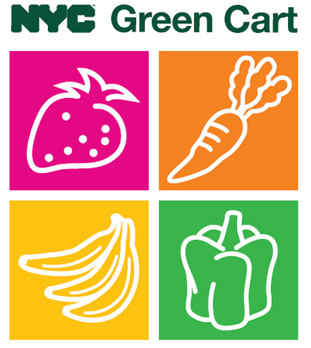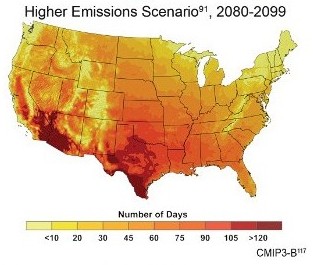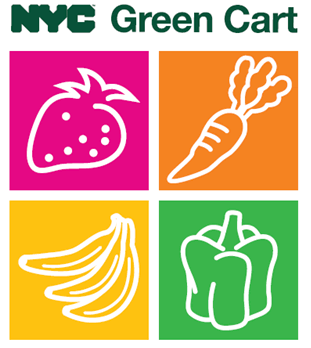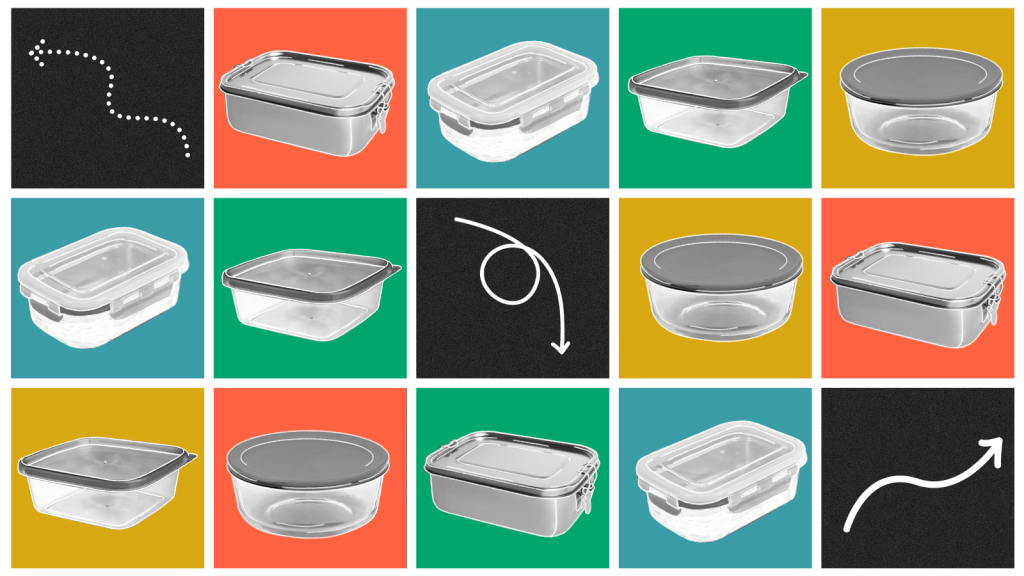 New York City took a baby step recently towards a state role in distributing healthy food. It significantly expanded a program to bring fruit and vegetable “carts” to low-income neighborhoods that lack good food options — so-called “food deserts.” And if the early response as reported by the NYT is any indication, the program looks to be a rip-roaring success:
New York City took a baby step recently towards a state role in distributing healthy food. It significantly expanded a program to bring fruit and vegetable “carts” to low-income neighborhoods that lack good food options — so-called “food deserts.” And if the early response as reported by the NYT is any indication, the program looks to be a rip-roaring success:
…[O]n Wednesday afternoon, an urgent line formed at a cheery new produce cart that had materialized at the corner of East Fordham Road and Decatur Avenue near Fordham University in the Bronx. “These strawberries look great, and they’re a bargain,” said Michelle Cruz, a 38-year-old graphic designer who lives nearby and found herself jostling other produce hounds under the cart’s jaunty green umbrellas.
The crowds who appear to be turning out for the carts should give some pause to elitist opponents of such programs who often doubt that low-income residents will put down their sodas and fast food and pick up apples and carrots. Indeed, a member of the USDA’s dietary guidlines panel (i.e. the people who brought you the food pyramid) recently speculated — as paraphrased by US Food Policy — “whether people would really eat much differently if healthy food were free.” The NYT provides a hint of an answer:
If the avid buyers at Decatur Avenue were any indication, residents of produce-poor neighborhoods may welcome the green-umbrella invasion. “Research has demonstrated that the greater the access, the more the consumption,” said Elliott S. Marcus, an associate commissioner of the city’s health department.
And New York didn’t just address access. While the program doesn’t officiallly subsidize fruit and vegetable prices (for which I’ve advocated before), it does subsidize the overhead of the vendors. As a result, they can offer aggressively low prices. According the article, produce was half the price (or even less) of the same stuff at local markets.
In some ways, this is such an obvious program that it’s painful to think that even this modest fleet of up to 1,000 produce carts could have failed based on opposition from brick and mortar vendors. While it did pass, it was a tough fight. As the NYT described the original city council proposal back in early 2008:
The measure had the backing of antihunger and child-advocacy groups, and when it was introduced it appeared to have strong support on the Council. But support began to waver amid heavy lobbying from the retail food industry, leading to a flurry of late changes and compromises.
And even now, not everyone is happy about the new competition.
“It may be good for health, but it’s bad for business,” said George Katehis, manager of the Splendid Deli Restaurant at 387 East Fordham Road. “A guy might buy a piece of fruit there instead of coming in here for a soda.”
Yes, George. I believe that’s the point. I’ve written before about our mind-boggling tendency to privilege the needs of business-owners over the general public in public policy debates. But the fact is that current businesses simply aren’t meeting the demand for fresh food in marginal neighborhoods — and this is true across the country. So who cares what they think?
This one small program isn’t going to solve the core problems of food deserts, or obesity for that matter. But it certainly suggests that government policies aimed at providing an adequate supply of healthy food at a reasonable price to low-income people have a good chance at succeeding. I can’t think of any reason why this shouldn’t be replicated in communities across the country. It’s cheap, quick and effective. And while cities like Philadelphia have had success with public/private partnerships to bring supermarkets in to underserved areas (a model which NYC is planning to emulate), building or renovating stores takes time and still relies to some extent on the good intentions of supermarket chains. Why should low-income folks have to wait for all that? Let’s roll some produce trucks, people!



